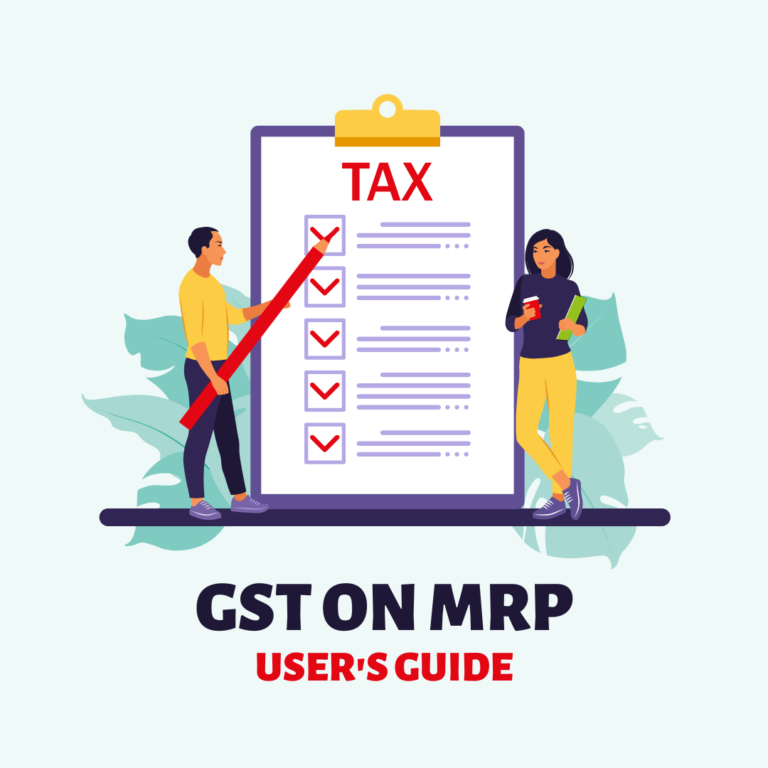How to do New GST Registration in India?
Goods and Services Tax (GST) is an indirect tax levied on the supply of goods and services in India. GST has replaced multiple indirect taxes such as Central Excise duty, Service tax, Value Added Tax (VAT), etc. The main aim of GST is to create a simplified tax system that reduces the burden of multiple taxes on businesses.
GST registration in India is mandatory for businesses with an annual turnover of over Rs. 20 lakhs. However, voluntary registration is also available for businesses with a turnover of less than Rs. 20 lakhs. Once registered, businesses are required to comply with various GST regulations such as filing returns and maintaining accurate records.
The benefits of GST registration for businesses in India include the ability to claim input tax credit, participate in inter-state trade, and improve compliance with tax regulations. GST registration also provides businesses with a competitive advantage as it enables them to sell their products or services to other registered businesses.

Who needs to register for GST in India?
As mentioned above, businesses with an annual turnover of over Rs. 20 lakhs are required to register for GST in India. In the case of businesses located in the northeastern states, the threshold limit is Rs. 10 lakhs. Additionally, businesses engaged in the supply of exempt goods or services are not required to register for GST.
It is important to note that businesses with turnover less than Rs. 20 lakhs are also eligible to apply for GST registration voluntarily. Voluntary registration can provide several benefits to businesses, such as the ability to claim input tax credit and the ability to sell to other registered businesses.
What are the Documents Required for GST Registration in India?
To register for GST in India, businesses are required to provide certain documents. These documents include:
- PAN card of the business owner
- Aadhaar card of the business owner
- Business registration certificate or proof of business registration
- Bank statement or cancelled cheque
- Address proof of the business premises
It is important to ensure that all the documents are accurate and up to date to avoid any delays in the registration process. Additionally, businesses should ensure that the documents are uploaded in the correct format as per the GST portal guidelines.
How to Register for GST Online in India?
The process for registering for GST in India can be completed online through the GST portal. The steps to register for GST online in India are as follows:
- Visit the GST portal and create a user ID and password
- Fill in the GST registration form with the required details and upload the necessary documents
- Verify the email and mobile number provided during the registration process
- Submit the application
After submitting the application, an Application Reference Number (ARN) will be generated. This ARN can be used to track the status of the GST registration application.
GST Registration Fees and Process Time in India
The fees for GST registration in India vary depending on the nature of the business and the state in which it operates. For example, the fee for GST registration for businesses in Maharashtra is Rs. 5,000 for a normal taxpayer and Rs. 2,500 for a composition taxpayer.
The process time for GST registration can range from a few days to a few weeks depending on the completeness of the application and the verification process. The GST registration process involves several steps such as verification of documents, verification of PAN, and verification of business premises.
Checking GST Registration Status
Businesses can check the status of their GST registration application on the GST portal using the Application Reference Number (ARN) provided during the registration process. The status of the application can be tracked through the “Track Application Status” option on the GST portal.
Consequences of Not Registering for GST in India
Failure to register for GST in India can result in penalties and fines. In addition to penalties, businesses may also face legal action for non-compliance with GST regulations. Non-registration can also lead to the loss of business opportunities as many businesses require their suppliers to be registered for GST.
Conclusion
In conclusion, GST registration is mandatory for businesses in India with an annual turnover of over Rs. 20 lakhs. However, voluntary registration is also available for businesses with a turnover of less than Rs. 20 lakhs. The process of registering for GST in India can be completed online through the GST portal.
The fees for GST registration and the process time vary depending on the nature of the business and the state in which it operates. It is important for businesses to comply with GST regulations to avoid penalties and legal action.
In addition to the above information, it’s worth noting that there are several other aspects of GST registration in India that businesses should be aware of. These include GST rates, GST returns, and GST invoicing requirements. To learn more about these aspects, businesses can visit the official GST portal in India or consult with a qualified tax professional.







